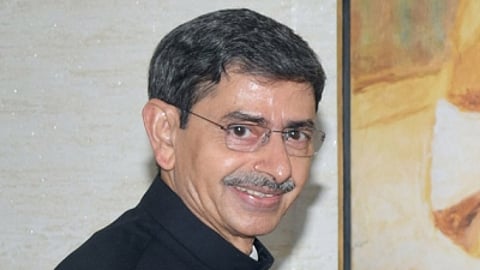

The Supreme Court’s verdict in State of Tamil Nadu vs Governor of Tamil Nadu, delivered on April 8, is a major win for the non-negotiable constitutional ideals of federalism and representative democracy. The court’s historic decision came in response to a writ petition filed by the Tamil Nadu government challenging the governor’s exercise of “pocket veto” of 10 bills lawfully passed by the state Assembly.
The context is that the governor sat on 12 bills – some dating back to 2020 – for several years. When the aggrieved state government approached the court in November 2023, the governor referred two bills for the President’s consideration. Thereafter, the state Assembly convened a special session and re-passed the remaining 10 bills for which assent was withheld.
When these 10 bills were re-presented before him, the governor referred them for President’s consideration. Out of these 10 bills, only one bill was assented to by the President, while the remaining were either rejected or kept pending.
The court’s decision evinces laudable temerity in exposing the governor’s blatant disregard for the Constitution through practicing gubernatorial procrastination. Article 200 of the Constitution obliges the governor to adopt one of the following three options when a bill is presented before him: Grant assent, withhold assent, or reserve the bill for President’s consideration.
The expression “as soon as possible” appearing in the first proviso to Article 200 mandates the governor to act with expediency. The Constitution nowhere envisages a “pocket veto” or “absolute veto” exercisable by the governor at will.
The constitutional scheme, as correctly pointed out by the court, is characterised by the movement of the bill, and expeditiously so, from one constitutional authority to another. Deliberate inaction or abdication on the part of the governor for partisan political ends is a direct affront to India’s representative democracy and “chokes” democratic will of the people.
It is in this context that the court passed certain guidelines on how a governor must act while withholding assent to a bill, or referring it for President’s consideration. In the facts of the instant case, the court invoked its residuary powers under Article 142 of the Constitution to deem the assent to have been granted to the 10 bills. Finally, the court observed that the President should seek the court’s opinion on constitutionality when a bill is referred to it by the governor. These findings are emblematic of judicial prudence, not overreach.
First, the court has prescribed certain timelines for the governor and the President, keeping in mind the constitutional significance of Articles 200 and 201 of the Constitution and their importance in India’s federal polity. In doing so, the court has simply reaffirmed an established principle of law that where no timeframe for the exercise of a power is prescribed, it should be exercised within a reasonable period.
The President or the governor is not amenable to the court’s contempt jurisdiction, and it remains to be seen how the court would respond in the event that these timelines are flouted. This principle applies to ordinary statutes (lower law) to limit abuse and, if anything, should apply with greater force to the constitutional text (higher law).
Secondly, the court invoking Article 142 of the Constitution to deem assent was both desirable and necessary in the facts of the case. “The governor failed to show due deference and respect to the judgments and directions of the court,” the court observed, while adding, “it was difficult to repose trust and remand the matter to the governor with a direction to dispose of the bills.” The exercise of the power is fundamentally premised on a clear judicial finding of constitutional misconduct and mala fides on the part of the governor.
Finally, some may argue that the court overlooked the constitutional mandate set out in Article 74 in coming to a finding that President should seek the court’s opinion on constitutionality. This argument, however, is misplaced. The court has not said it is mandatory for the President to seek the court’s opinion.
What it has said is that an opinion should be sought as a matter of prudence to dispel any apprehensions of bias, arbitrariness, or mala fides. In any event, an opinion expressed by the Supreme Court on any provision of the Constitution must bind the council of ministers, and the President must be advised to act accordingly.
The framers of our Constitution intended that governors perform their constitutional roles and functions in the best interests of our constitutional democracy.
The lived experience of India’s Constitution has been quite the opposite: Governors act as political agents of the Union government and tend to thwart, not promote, a vibrant constitutional culture. The scathing judicial finding of illegality and mala fides by no less than the Supreme Court has brought the governor’s constitutional legitimacy to hold the office under serious question. The dignity of office he holds demands his forthwith removal, nothing less.
Ashish Goel
(The author is a lawyer at the Supreme Court)
[Footnote is a weekly column that discusses issues relating to Tamil Nadu]